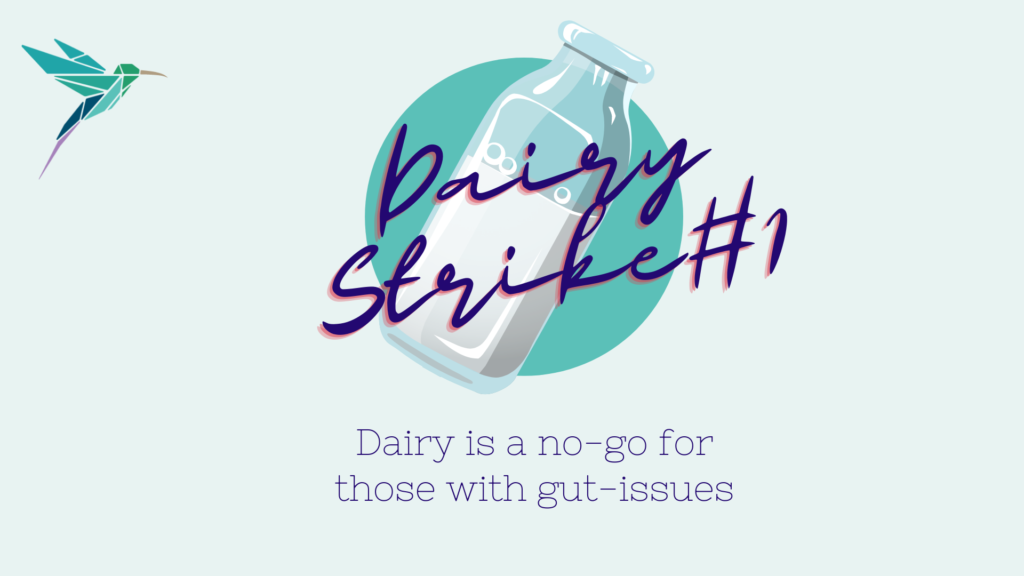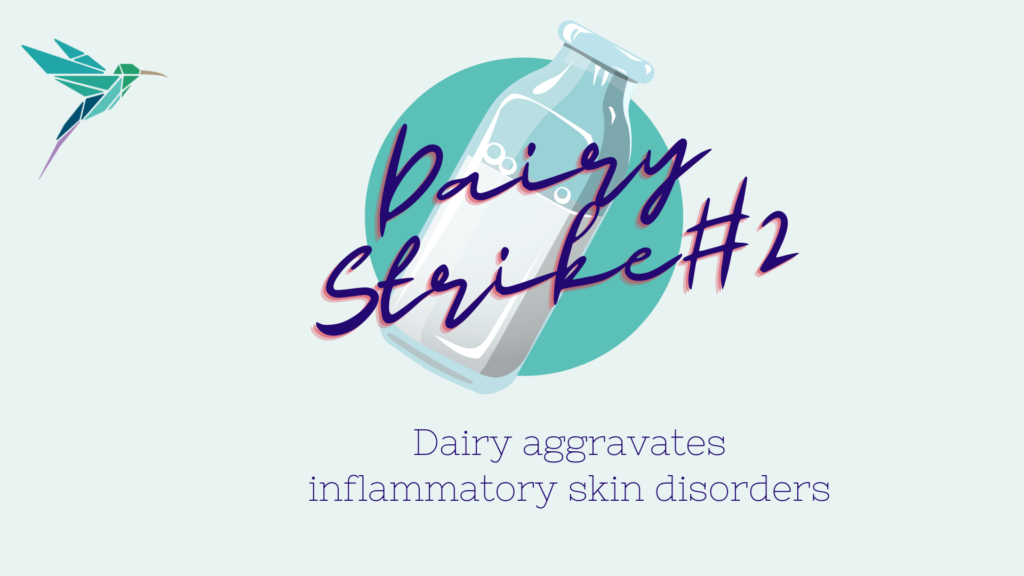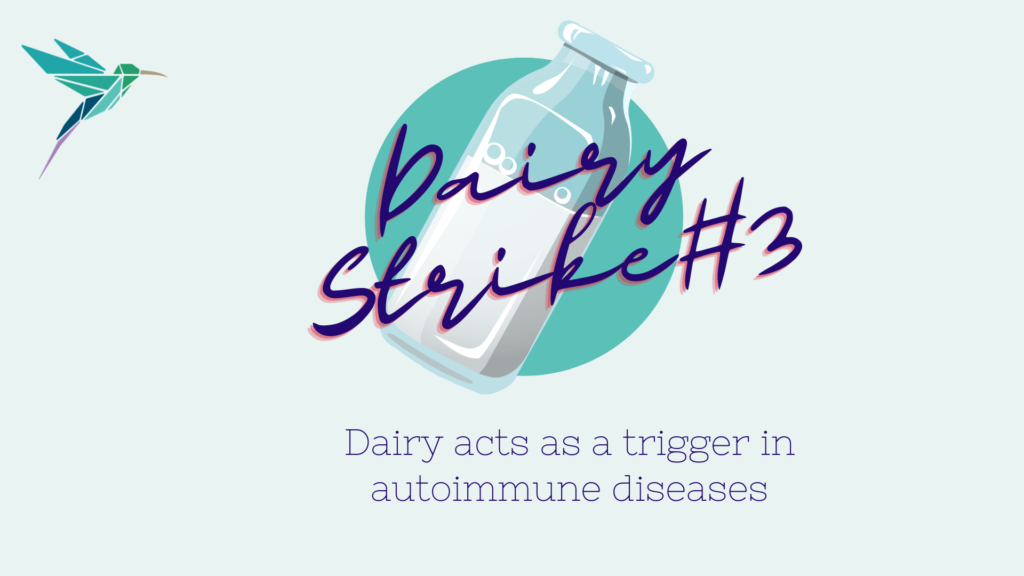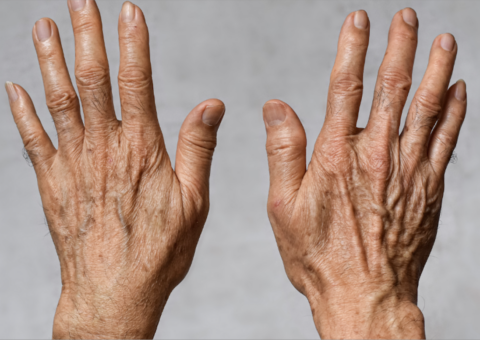
Unfortunately, the existing science on the health benefits of dairy is about as unclear as a glass of milk!
![]() Why is this?
Why is this?
Do me a favor and put yourself into the shoes of a researcher for a moment: Now consider all components of a dairy product – its fat content; micronutrient density; added sugar, additives or sweeteners; number of live probiotic bacteria…
And just when you’ve exhausted your list, you remember that you’ve got to take the processing methods into account. Has the dairy product been pasteurized? Or has it been fermented?
Oh wait, and what about the source of the product? Is it from a cow – and, if so, which type of cow? Or is from a goat or sheep?
Exactly, there’s more to dairy than what meets the eye. It’s no surprise that studies reveal conflicting results so often!
![]() What do we know?
What do we know?
Your gut comes first, always.

Dairy is a no-go for those with gut issues, for a couple of reasons:
- Dairy’s protein components (such as alpha- and beta-casein, casomorphin and butrophilin) act as allergenic culprits in these individuals. The large protein fragments are able to move through the ‘leaky’ gut wall, aggravate the immune system and cause further damage to the gut lining.
- Casein has a similar molecular structure to the wheat protein, gluten. About 80% of people with a gluten sensitivity will react to dairy too!
- Lactose-intolerance individuals do not produce the enzyme (lactase) necessary to digest and absorb the sugar (lactose) in dairy. It’s highly likely that you’ll be hit here, as approximately 65% of the population has a reduced ability to digest lactose after infancy!

Dairy does it again – aggravating inflammatory skin disorders:
- Food allergies are highly correlated with atopic dermatitis (AD). Dairy is considered a ‘common trigger food’ which can cause a ‘flare-up’ within minutes to hours of consumption in AD-sufferers.
- While estimates vary, a 2.2 to 2.4-fold higher risk for celiac disease has been reported amongst psoriasis patients as compared to those without psoriasis. In brief, gluten may very well act as a ‘trigger’ in psoriasis patients. Remember, casein has a similar identity to gluten in the gut – so watch out for dairy too!
- Research clearly indicates the role of a gut-skin connection in rosacea. Now, consider dairy’s effects on those with poor gut health. Yes, dairy could definitely be problematic here.
- Dairy intake is associated with increased skin inflammation and sebaceous gland size in acne patients.

An autoimmune disease? And you’re out!
Dairy often acts as an inflammatory food here by revving up the inappropriate immune response.
![]() Why is it so hard to walk away from dairy?
Why is it so hard to walk away from dairy?
For starters, there is biological plausibility for your dairy addiction! Casomorphins in dairy act like opioids in the body, which are responsible for the ‘I can’t put it down’ response. Add this to the rich-creaminess or salty-nature of your favorite type of dairy and you’re defeated.
For some, it may be a concern about stepping into a ‘nutritionally’ incomplete diet. Here’s the truth – dairy isn’t necessary for health as its nutrients can be obtained from many other foods.
Don’t worry, if a dairy-free diet is for you, your nutritionist at TASH 360 will ensure that your diet remains nutritionally-balanced and interesting!
![]() So, if you’re still in the game, should you be avoiding dairy products?
So, if you’re still in the game, should you be avoiding dairy products?
Herein lies the true debate. Commercial dairy contains naturally-occurring and added hormones. A decade later, and researchers are still debating whether ‘milk hormones’ are detrimental to human health.
So, if you decide to include dairy, take caution by:
- Being smart about it – keep up to date with emerging research. Chat to your TASH 360 nutritionist.
- Consume in moderation, always.
- Choose fermented forms first – especially yoghurt or kefir. Cheese is debatable!
- Select organic, pasture-raised dairy that’s from grass-fed cows, sheep or goats.
- Something controversial, but now becoming clearer: opt for high-fat dairy over lower-fat counterparts.








